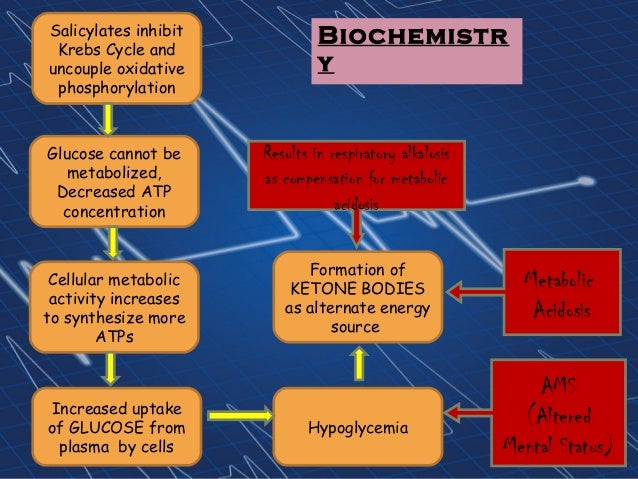

Any patient with high salicylate levels should be started on general support measures. 2ĭone normograms, which are widely used in several different types of intoxications, should not be used in acute salicylate intoxications because of the poor correlation between serum concentrations and the clinical and/or laboratory alterations produced. Therapeutic levels of salicylic acid range between 10mg/dl and 30mg/dl, and higher levels can produce moderate-severe intoxications, causing neurological deficits, coma, convulsions, pulmonary oedema, sustained hypotension, acute renal failure, and severe electrolyte imbalances, 1 although patient death is rare. The patient was discharged with no organ damage. The acid-base alterations were corrected following treatment, and drug concentrations decreased to 31.99mg/dl (51% reduction), with improved cognitive state and normalised blood pressure. Given the poor clinical evolution, with increased nitrogen retention values and altered haemodynamics, we decided to provide conventional haemodialysis for four hours, with positive balances (+2500ml) and high-flux polysulfone. We performed a gastric lavage and started abundant hydration treatment and urine alkalization, as well as admitting the patient into the intensive care unit (ICU), where her low blood pressure values and oliguria continued, and her level of cognitive impairment increased. Serum salicylate levels were positive with concentrations of 65.68mg/dl. Laboratory tests revealed urea: 81mg/dl, serum creatinine: 1.84mg/dl, pH: 7.39, HCO 3: 13.9mmol/l, and lactate: 1mmol/l. A physical examination revealed sustained arterial hypotension with a systolic blood pressure (SBP) of 80-90mm Hg and diastolic blood pressure (DBP) of 50-60mm Hg. Here we present the case report of a 60-year old woman with a background of depression that sought emergency treatment for mild cognitive impairment and consumption of multiple acetylsalicylic acid tablets. In fact, in recent years, the incidence of this condition has decreased due to a greater use of other drugs, such as paracetamol and non-steroid anti-inflammatory drugs. Acute salicylate intoxication is one of the most common causes of intoxication from antipyretics.


 0 kommentar(er)
0 kommentar(er)
